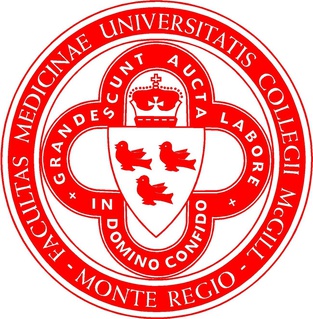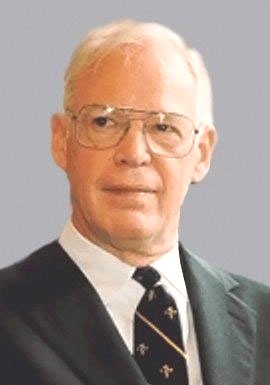Malcolm Macleod (born in Edinburgh in 1965) is a Scottish neurologist and translational neuroscientist.
Malcolm Macleod (born in Edinburgh in 1965) is a Scottish neurologist and translational neuroscientist.
Macleod spent his early years in Achiltibuie and Inverness. He attended the Leachkin Primary School, Jedburgh Grammar School and Loretto School, Musselburgh, before studying medicine at the University of Edinburgh. As an undergraduate he was President of Edinburgh University Students' Association. After graduation, he held a number of junior medical posts in Edinburgh and Forth Valley. He was Rector of the University of Edinburgh from 1994 to 1997, Secretary of the Labour Campaign for a Scottish Parliament, and a member of the National Executive of the Scotland FORward campaign, the cross party group which campaigned for a YES-YES vote in the 1997 devolution referendum.
From 1995 to 1998 he studied for a PhD at the University of Edinburgh, followed by 2 years in a post-doctoral position at the Seckl lab, before embarking on training in neurology. In 2003 he was Visiting Fellow at the National Stroke Research Institute in Melbourne, Australia.
His research interests are diverse and have included the development of effective treatments for acute ischaemic stroke; the optimal use of animal models of disease; the neurobiology of the mineralocorticoid receptor; and impact of social deprivation on the incidence and management of neurological diseases.[ citation needed ]
He is currently Professor of Neurology and Translational Neurosciences and Academic Lead for Research Improvement and Research Integrity at the University of Edinburgh, [1] where he led the 2020University of Edinburgh Research Culture Survey. Since 2005 he has been Consultant Neurologist at Forth Valley Royal Hospital.
With Howells he co-founded the CAMARADES collaboration in 2005. He is Academic Coordinator of the European Quality in Preclinical Data IMI consortium. He was a lead author in the Lancet Series on Research Waste in 2014, and is a member of the UK Reproducibility Network steering committee and the UK MHRA Commission for Human Medicines. His current research interests relate to providing evidence for the effectiveness (or not) of strategies which might be adopted by funders, journals and institutions to improve the quality of their research.

Neurology is the branch of medicine dealing with the diagnosis and treatment of all categories of conditions and disease involving the nervous system, which comprises the brain, the spinal cord and the peripheral nerves. Neurological practice relies heavily on the field of neuroscience, the scientific study of the nervous system.

The Faculty of Medicine and Health Sciences is one of the constituent faculties of McGill University. It was established in 1829 after the Montreal Medical Institution was incorporated into McGill College as the college's first faculty; it was the first medical faculty to be established in Canada. The Faculty awarded McGill's first degree, and Canada's first medical degree to William Leslie Logie in 1833.

Wake Forest University School of Medicine is the medical school of Wake Forest University, with two campuses located in Winston-Salem, North Carolina and Charlotte, North Carolina, United States. It is affiliated with Atrium Health Wake Forest Baptist, the academic medical center whose clinical arm is Atrium Health Wake Forest Baptist. In 2021, U.S. News & World Report ranked Wake Forest School of Medicine 48th best for research in the nation and 80th best for primary care. The School of Medicine also ranks in the top third of U.S. medical schools in funding from the National Institutes of Health (NIH).

George Ojemann is a professor emeritus of neurologic surgery in the Department of Neurological Surgery at the University of Washington School of Medicine.
Alastair Buchan is a British neurologist and researcher in stroke medicine. His main research interest is how to make neuroprotection a reality in the clinic. From October 2008 until January 2017, he served as the Dean of Medicine and the Head of the Medical Sciences Division, University of Oxford. He currently holds the Chair of Stroke Research at the University of Oxford.
Pankaj Sharma is a British professor of Clinical Neurology at Royal Holloway College, University of London, and consultant neurologist at Imperial College London. He is director of the Institute of Cardiovascular Research at Royal Holloway (ICR2UL), and formerly head of the Imperial College Cerebrovascular Research Unit (ICCRU) at Imperial College London. His main interest is in identifying genes for stroke, particularly in those of South Asian heritage.
Joseph Boyd Martin is a Canadian physician who is the Edward R. and Anne G. Lefler Professor Emeritus of Neurobiology at Harvard Medical School. Prior to that, he served as the Dean of Harvard Medical School from 1997 before stepping down on June 30, 2007.
Avindra "Avi" Nath, is a physician-scientist who specializes in neuroimmunology. Nath is a senior investigator, and intramural clinical director of the National Institute of Neurological Disorders and Stroke (NINDS) at the National Institutes of Health (NIH) in the United States. At NINDS, Nath also leads the Section of Infections of the Nervous System and plans to institute a translational research center. He previously served in several research and administrative positions at the Johns Hopkins Hospital and the Johns Hopkins University School of Medicine.

Martin A. Samuels, MD, DSc (hon), FAAN, MACP, FRCP, FANA, was an American physician, neurologist and medical educator whose unique teaching style and contributions, accessible to a wide audience, were widely known and celebrated. He wrote and spoke on the relationships between neurology and the rest of medicine, and linked the nervous system with cardiac function, highlighting the mechanisms and prevention of neurogenic cardiac disease.
Dame Pamela Jean Shaw is a British consultant neurologist and professor of neurology at the University of Sheffield. She is the founder and director of the Sheffield Institute for Translational Neuroscience, and in 2019 was appointed to lead the National Institute for Health Research (NIHR) Sheffield Biomedical Research Centre.
The Liverpool Neurological Infectious Diseases Course is an annual two-day course aimed at medical professionals and students with an interest in neurological infectious diseases. The course is organised by the Liverpool Brain Infections Group, a division of the Institute of Infection and Global Health at the University of Liverpool, in collaboration with the Walton Centre NHS Foundation Trust, Alder Hey Children’s NHS Trust, Royal Liverpool University Hospital, and Liverpool School of Tropical Medicine, and is chaired by the neurologist Tom Solomon. It takes place during May at the historic Liverpool Medical Institution, in Liverpool, UK. A variety of both national and international speakers contribute to a programme which covers clinical aspects of common central nervous system infections such as meningitis and encephalitis, as well as rarer neurological infections and talks on recent advances in related research. The course is accredited by the UK Royal College of Physicians, and attracts delegates from many countries worldwide.
José Biller is an Uruguayan born, American neurologist specialized in stroke and cerebrovascular disorders, currently professor and chairperson of the department of neurology at Loyola University Chicago, Stritch School of Medicine, Emeritus Editor-in-Chief of Journal of Stroke & Cerebrovascular Diseases, a Foreign Academic Correspondent of the National Academy of Medicine in Uruguay, a Fellow of the Mexican Academy of Neurology and an Honorary Member of the Chilean Society of Neurology, Psychiatry and Neurosurgery.
Joanna Marguerite Wardlaw is a Scottish physician, radiologist, and academic specialising in neuroradiology and pathophysiology. Wardlaw worked as a junior doctor before specialising as a radiologist. She continues to practice medicine as an Honorary Consultant Neuroradiologist with NHS Lothian. She has spent her entire academic career at the University of Edinburgh.
William Ritchie Russell CBE FRSE was a 20th-century Scottish neurologist.

Neil Simson Gordon, was a Scottish paediatric neurologist, who conducted research into eponymic diseases including chronic handicaps, cerebral palsy, epilepsy, disorders of languages and learning disabilities. Gordon was one of the first to initiate comprehensive multidisciplinary assessment centres for children. He has been described as the "wise grand old man of UK paediatric neurology" and first specialist paediatric neurologist to be appointed outside London.
Miratul Muqit FRSE FMedSci is a British neurologist and a Programme Lead at the MRC Protein Phosphorylation and Ubiquitylation Unit (MRCPPU) in the School of Life Sciences at the University of Dundee. His research focuses on the study of the PINK1 gene, mutations in which are a major cause of Parkinson's disease.
Tatjana Rundek is an American neurologist and epidemiologist. She is the Director of the Clinical Translational Research Division, Vice Chair of the Clinical Translational Research Neurology, and Evelyn F. McKnight Endowed Chair for Learning and Memory in Aging at the University of Miami's Miller School of Medicine.
Ana Catarina Fonseca is a Portuguese neurologist, researcher and university teacher.
Professor Patrick Francis Chinnery, FRCP, FRCPath, FMedSci, is a neurologist, clinician scientist, and Wellcome Trust Principal Research Fellow based in the Medical Research Council Mitochondrial Biology Unit and the University of Cambridge, where he is also Professor of Neurology and Head of the Department of Clinical Neurosciences.

Edward Wild, also known as Ed Wild, is a British neurologist and neuroscientist in the field of Huntington's disease and an advocate for scientific outreach to the public. He co-founded the Huntington's research news platform HDBuzz in 2010. He is a professor of neurology at UCL Institute of Neurology and is an associate director of the UCL Huntington's Disease Centre. He is also a consultant neurologist at the National Hospital for Neurology and Neurosurgery in London.